It’s ‘mean and tricky’ versus ‘weak and sneaky’
The election campaign is rapidly sinking into the ugly swamp of petty personality politics. Not for decades has a government with such a small agenda faced an opposition with an even smaller plan.
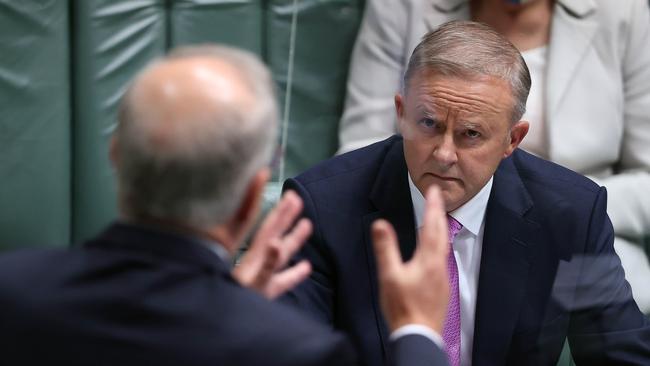
The Prime Minister’s pitch is to argue the Coalition has achieved a world-beating health and economic response to the global Covid-19 pandemic through “decisive and necessary steps” and that Labor can’t be trusted with money or health to handle the recovery in the trying times ahead.
The Opposition Leader’s argument is that the “decade-old government” failed on the economic and health responses to the pandemic and that the Coalition is divided and the captive of extremists.
It’s all about the tricky, dissembling “Scotty from marketing” who doesn’t really care about addressing climate change or have control of the government and the weak, whingeing, whining Albanese who is “all insults and no ideas”.
Not for decades has a government with such a small agenda faced an opposition with an even smaller plan, with both sides led by unpopular leaders appealing to voters to “trust us” and not vote for the other guy.
Of course, this election cycle has been shaped and twisted by the once-in-a-century pandemic and global economic disaster that continues around the world as governments grapple with Covid-19, new coronavirus variants, and international tensions.
Parliament has been fractured and disrupted by Covid restrictions, adding to the disconnect and frustrations of MPs.
The role of premiers in federal campaigning, particularly Labor Premiers fighting Morrison, could prove as damaging to the Coalition as the “Joh for Canberra” push when Queensland premier Joh Bjelke-Petersen sabotaged the Liberals’ 1987 federal election.
But 2022 promises to be a dismal offering when the choice is between two leaders saying the other one will be worse than me. As the parliamentary year draws to a close, the Coalition has little legislative agenda and Labor sits on its key policies waiting for a last-minute disclosure.
What remaining agenda Morrison does have includes a net-zero carbon emissions target by 2050, a religious freedom bill and a national integrity commission bill, all of which are creating dissension and division in Coalition ranks leading to MPs and senators either voting against the government or threatening to do so.
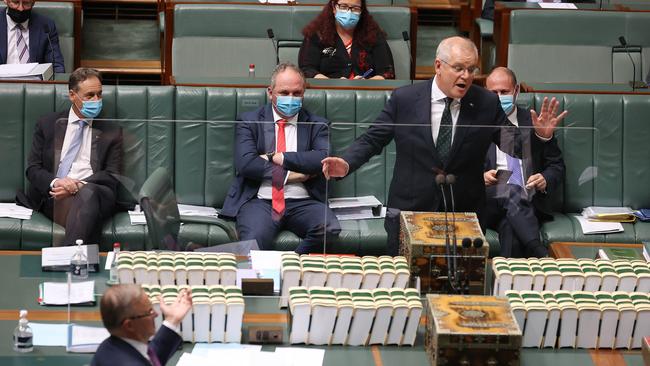
Morrison, Greg Hunt, Josh Frydenberg and Peter Dutton, are all valiantly trying to concentrate on the national vaccination success, the economic recovery, and the threat to national security from Chinese aggression – but the noise of the lesser issues is drowning them out.
Albanese’s focus is on destroying Morrison’s personal credibility as he delays the crucial decision whether Labor will go higher than the Coalition’s interim 2030 carbon emissions target of cuts between 26-28 per cent (which will easily be achieved) and will legislate for those 2030 cuts. As well, apart from rejecting the most unpopular tax proposals Bill Shorten took to the last election, there are no definite economic and tax proposals from Labor as it maintains a general aspirational approach without detail.
The parliamentary chaos and Coalition rebellions this week over the federal integrity commission, mandatory vaccinations, climate change, and religious freedoms will have a bearing on the morale and attitude of all MPs if they continue next week in defiance of Morrison’s warning to his Coalition colleagues in the partyroom on Tuesday that disunity was death and could mean the election of a Labor government.
But it’s still fundamentally all noise exacerbated by Covid fears and febrile exhaustion, with neither side offering much beyond rhetoric before Christmas and the summer break.
Everyone, politicians and voters, are looking forward to a more normal Christmas, international travel, family reunions, more jobs, going to the cricket, and having a break from politics and pandemic restrictions.
This national refresh and reset is Morrison’s best hope of breaking free of the entanglements of state border closures, the lingering climate change guerrilla war, vaccination hysteria and a myopic failure to rate Australia’s global success.
In the meantime, it is the absence of agendas and the emergence of Covid political fever that is driving the hyperventilated personal attacks on Morrison and Albanese as the Liberals seek to catch up on Labor’s successful credibility attacks on the PM and take advantage of Albanese’s long-term unpopularity.
The necessary negativity of the attacks, in the absence of alternative agendas, means that at least until next year, and possibly right up to the eve of the election campaign, the concentration will be on the leaders’ personalities.
There is no doubt Albanese’s single-minded, cynical and successful attack on Morrison’s credibility, helped by French President Emmanuel Macron and former PM Malcolm Turnbull, is dragging down the Prime Minister’s approval rating with voters.
Albanese’s campaign against Morrison’s authority and veracity, which began during last year’s bushfires, reached a peak in parliament on Thursday when he asked Morrison if he had lost control of the parliament, the Coalition and the government? Morrison’s initial one-word reply of “No” was mercifully brief and calm, although there were more irritating questions and more frustrated answers to follow.
The first danger for Labor in concentrating on what Morrison described as “petty and small questions” about whether he told the truth is that it looks like they aren’t interested in substantive issues and addressing the concerns of people frightened by Covid and worried about their jobs.
The second danger is that inviting personal appraisals and comparisons between Morrison and Albanese means the Labor leader’s long-term unpopularity, still below Shorten’s, will be emphasised and voters will decide that while they are unhappy and frustrated with Morrison, they are not prepared to vote for a change of government and install Albanese as prime minister.
When Malcolm Fraser was elected from opposition in 1975, he had a sweeping alternative to the Whitlam government. In 1983, when Bob Hawke defeated a tired government from opposition, Labor had a breadth of vision and offered a stark choice.
When John Howard defeated the Labor government in 1996, facing an unpopular leader, he offered a small policy target but a philosophical choice.
When Kevin Rudd won from opposition in 2007, his big difference was a new start with fresh enthusiasm. And when Tony Abbott defeated Labor in 2013, he offered vibrant change.
For the past 50 years, governments have fallen in part because of leaders’ failings and character assassination but more so because there was a mood for change that was met with a viable alternative.
Despite the Prime Minister having to call on his Coalition colleagues to unite or face electoral defeat after divisions and disloyalty, the Coalition still trailing in the polls and the likelihood of more shenanigans in the final parliamentary week, Morrison can still recover.
In early 2001, the Coalition recovered from its lowest “mean and tricky” ebb to win the election nine months later. There were huge international security developments that year as well, which served to help Howard and Peter Costello to recover from their own internal assessment of being “mean and tricky” – but it also helped that Howard dubbed his popular Labor opponent, Kim Beazley, as “lacking ticker”, and the meanies beat the weakies.
Howard used the pre-election budget to reinforce good economic management and give concessions to older Australians and business, appealed to conservative concerns, and acted decisively. Labor’s backward-looking plan to “roll back the GST” and general promises on education didn’t work.
Morrison and the Treasurer still have a chance for a budget next year. They are going to focus on top-order global economic recovery, delivering tax cuts, and re-running Labor’s 2019 $387bn tax plans.
And while Labor has been undoubtedly superior in its black-branding of Morrison, there are signs the Coalition has landed some cut-through lines about Albanese being a whiner, negative and, most importantly, a weak leader who wants to sneak into government with the Greens and a hidden agenda.
Morrison said on Thursday: “Those opposite think whinging and whining and sledging is a recipe for getting into government. But it’s not. You’ve actually got to have policies … you can’t just stand up every day and have a whinge and a whine and a bit of a carry on.”
The government hopes, too, that the problems and delays with vaccination rollout earlier this year will be seen in a different perspective as Australia leads the world in vaccination rates and booster rollouts in 2022.
Morrison’s intent is to point to Labor “looking through the rear-vision mirror” at the health and economic impacts of the pandemic while he offers hope and a “forward-looking vision” going into the election and beyond.
Even now, within six months of an election, it is silly to declare the election won either way. Both Morrison and Albanese have to win seats – the Coalition at least three and Labor nine – to claim government in their own right, and redistributions, retirements and the fractious Covid fever make assessments almost impossible.
So, at least for next week, get ready for another barrage between the mean and tricky and the weak and sneaky.


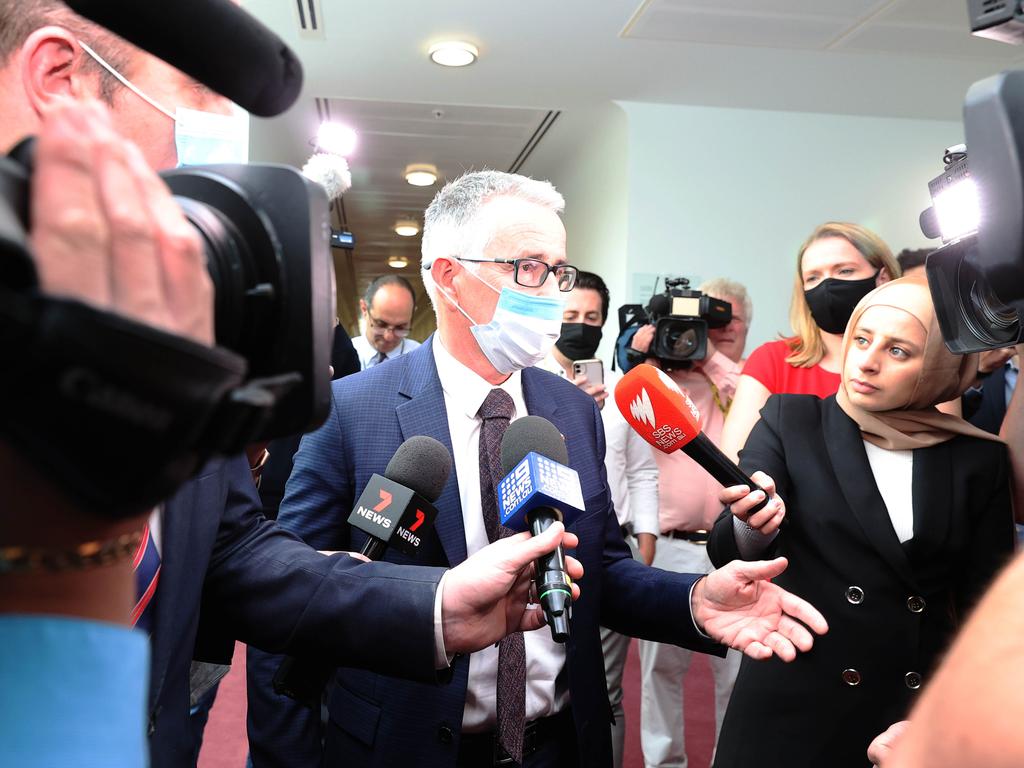
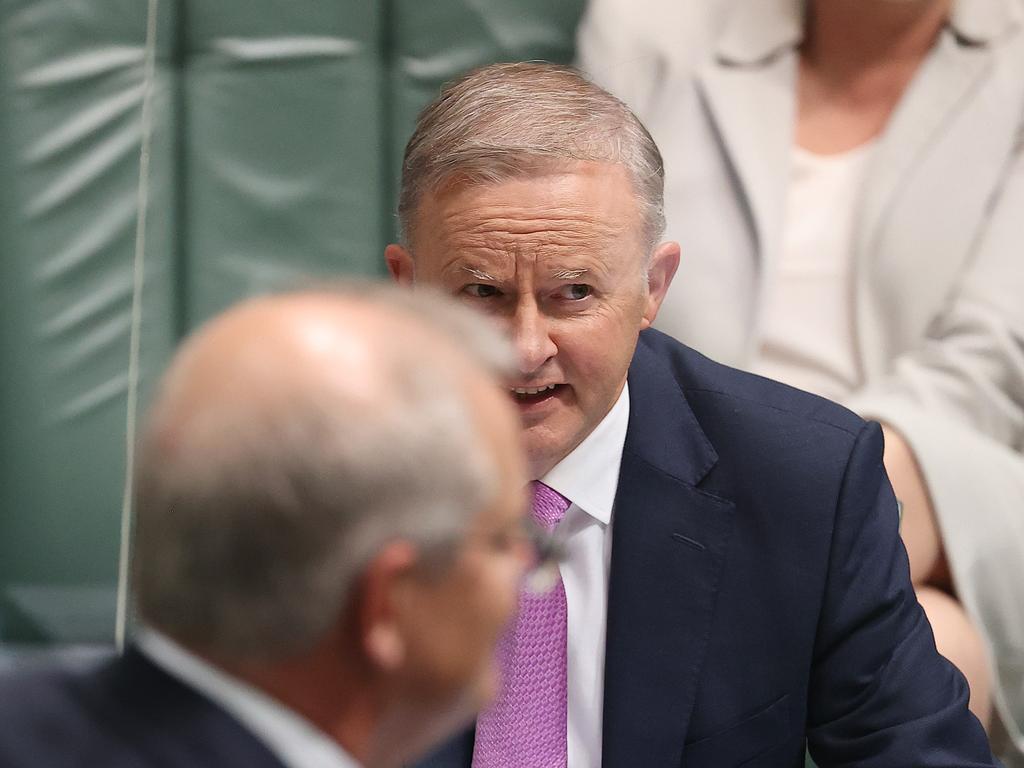
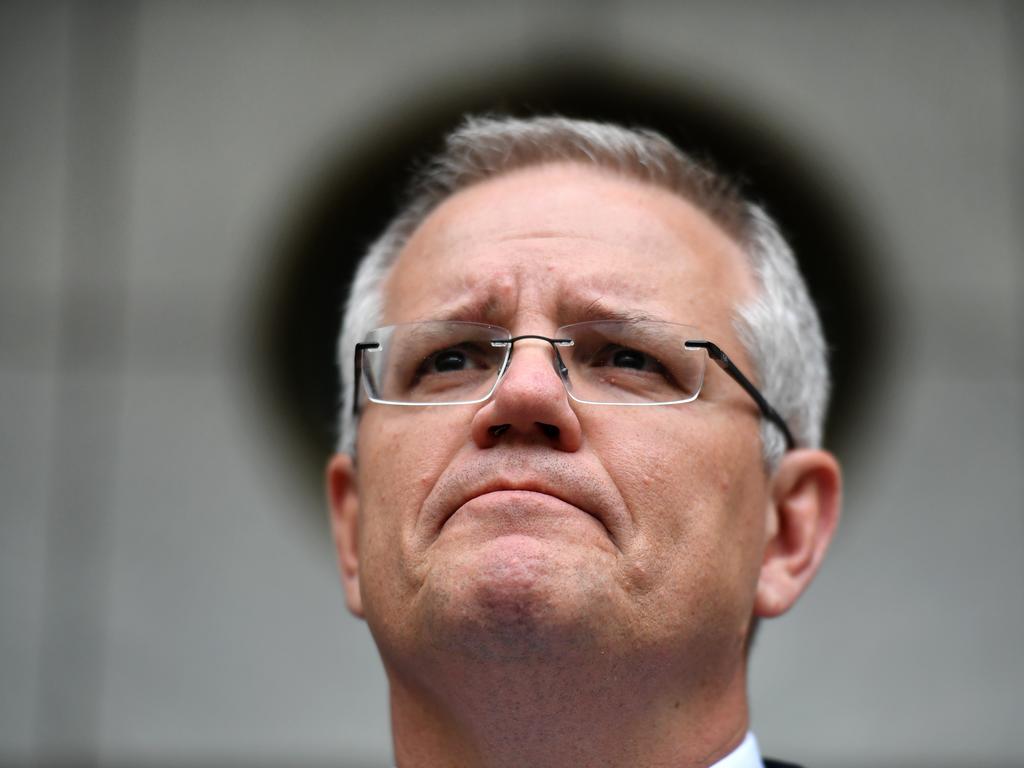
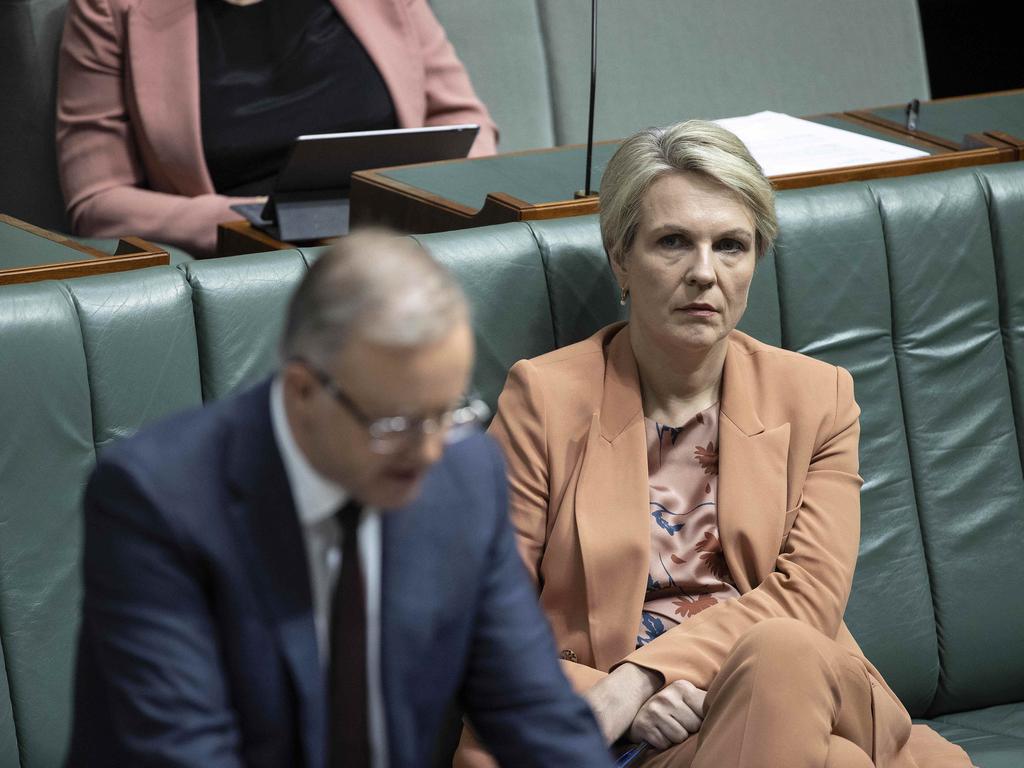
The 2022 election is going to be a choice between “mean and tricky” and “weak and sneaky”, as Labor tries to tag Scott Morrison as an untrustworthy “liar from the shire” and the Coalition aims to paint Anthony Albanese as having a “two-way bet” on everything as he seeks to sneak into government with the Greens.